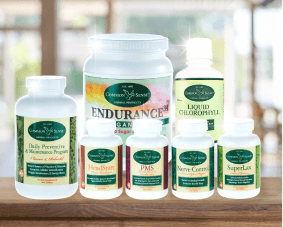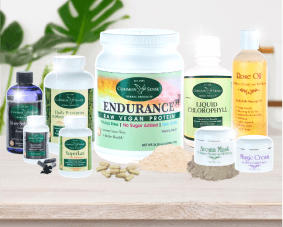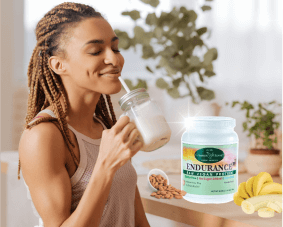
Vegetarians, health-conscious people, and those looking for more sustainable sources of protein are all turning to plant based protein. With tofu, veggie burgers, and even new options that simulate the taste and texture of meat, it's a great time to try out these alternative protein sources. But is plant based protein healthy? How much nutritional value does it offer? In this article, we'll examine whether plant based protein is an effective source of your daily recommended protein.
Plant Based Protein: What Is It?
Plant protein can take many forms, but it's basically just a meaningful source of protein that originates from plants. Foods like the Impossible Burger fall into this category, but so do tofu, black bean burgers, tempeh, and more. Nuts, beans, and even peas are all good sources of plant protein, too. These proteins tend to be highly nutritious, not just because they offer a low-fat source of protein but also because the plants that contain them also tend to be high in vitamins, minerals, and fiber. Protein is an essential nutrient that helps your body grow, maintain, and repair itself. As we'll see though, not all proteins are created equal. One of the challenges of getting enough of the right proteins through a plant-based diet is that you may have to combine proteins or seek off-the-shelf plant based options that offer all of your necessary protein.
Plant Protein vs. Animal Protein: Which Is More Effective?
Proteins are made up of compounds called amino acids. There are 22 different amino acids that can be derived from proteins, and there are nine that the human body cannot produce on its own. That means we have to get them from external, dietary sources of protein. Having a good balance of all the amino acids in the body keeps us stronger, helps the body recover from exercise faster, and will make you healthier overall.
Which Has More Amino Acids?
A protein source that contains all nine essential amino acids is known as a "complete" protein. Most animal protein products are considered "complete protein" sources. But—finding complete sources of protein for vegans is just as easy. It is, however, important to know which plant based proteins are complete, which aren't and which you can combine into a diet that contains all nine needed amino acids. Most sources of a plant based protein don't contain all nine, making them incomplete proteins. There are a few plant-based foods, such as buckwheat and quinoa, that qualify as complete proteins, but for vegans, it's still wise to combine proteins in their diet. This refers to the practice of using multiple sources of plant protein to get all of your necessary amino acids. Aside from the foods mentioned already, some plants rich in protein include avocados, hemp, lentils, and rice. For those of us who eat a plant-based diet and want to ensure we're getting the full spectrum of amino acids, a vegan protein drink like Common Sense™ Products' Endurance34 Raw Vegan Protein Powder will do the trick.
Which Is Healthier?
When it comes to proteins, it's not all about amino acids. It's also important to consider the other nutrients a protein-heavy food can provide. Sources of animal protein tend to be high in fat and cholesterol. Plant proteins, on the other hand, are often heavy on antioxidants, which can help protect your body against disease-causing free radicals and help to prevent serious health issues like heart disease and cancer. And of course, many plant based options like tofu and broccoli also contain iron, and B12 can be found in many breakfast cereals and nutritional yeast. As mentioned above, plant proteins also contain considerably more fiber, which is an important ingredient in digestive health, and one many people don't consume enough of.
What About Gaining Muscle?
If you love lifting weights, chances are you've had a protein shake or two in your lifetime. These drinks purport to help the body recover from a workout faster while building more muscle, helping people get stronger in less time. Just because you're vegan, doesn't mean you don't have protein shake options. By picking the right product, you can still ensure that you're getting the right combination of amino acids to help with recovery. If you want to make absolutely sure you're getting enough of all kinds of amino acid, CSP Endurance34 Raw Vegan Protein Powder is once again a great option.
So How Effective Is Plant Based Protein?
In the end, it's easy to get the full spectrum of amino acids from plant based proteins. Pulses like beans, peas, and chickpeas combined with grains will give you all nine amino acids with ease. After a workout, serving of hummus on bread or toast is just as effective a recovery snack as beef jerky, and much healthier, too. If you're vegan, just be sure to diversify your protein sources to ensure you're consuming the full spectrum of amino acids. Plant based sources of protein have another major leg up over animal products: they're much better for the environment. The raising of livestock leaves a massive carbon footprint, while farming helps absorb carbon from the atmosphere and provides a habitat and food to important pollinating wildlife like bees.
Conclusion
In the end, the source of your protein is less important than the amount of protein you consume. Many vegans and even vegetarians worry about their protein intake, but by learning which plants contain the right amounts and kinds of protein, you'll easily be able to eat enough to not only stay healthy, but build lean muscle. You'll also be doing it with a much smaller carbon footprint and with much less saturated fat and cholesterol in your diet than meat-eaters'. If you eat a plant based diet and want to ensure you're getting enough protein without having to worry, or if you need a quick protein fix post-workout, Common Sense™ Products' Endurance34 Raw Vegan Protein Powder is not only a complete protein source but also a source of plant-based iron. Check out Common Sense™ Products to learn more!








